In Pics: World's first Dual Mode Vehicle (DMV) debuts, can run both on road and rail
The world's first dual-mode vehicle that can run equally on road and rail, had made its public debut in the town of Kaiyo in Japan's Tokushima prefecture. The DMV looks like a minibus and runs on normal rubber tyres on the road, but when it arrives at an interchange, steel wheels descend from the vehicle's underbelly onto the rail track, effectively turning it into a train carriage. The train wheels lift the front tyres off the track while the rear wheels stay down to propel the DMV onto the railway. The DMV can carry up to 21 passengers and runs at a speed of 60 km/h (37 mph) on rail tracks and can go as fast as around 100 km/h (62 mph) on public roads, Asa Coast Railway said.
)
The world's first dual-mode vehicle (DMV) has made its public debut in the town of Kaiyo in Japan's Tokushima prefecture.
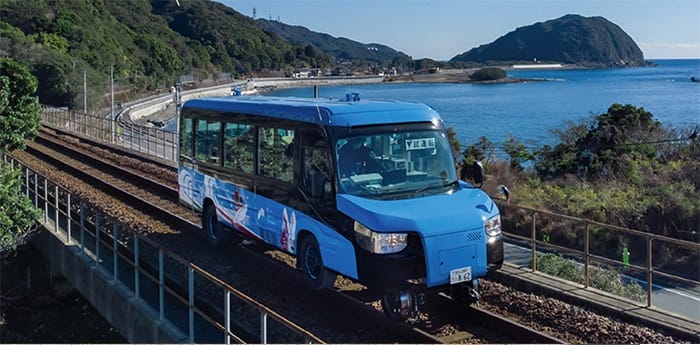
The DMV looks like a minibus and runs on normal rubber tyres on the road. But when it arrives at an interchange, steel wheels descend from the vehicle's underbelly onto the rail track, effectively turning it into a train carriage.
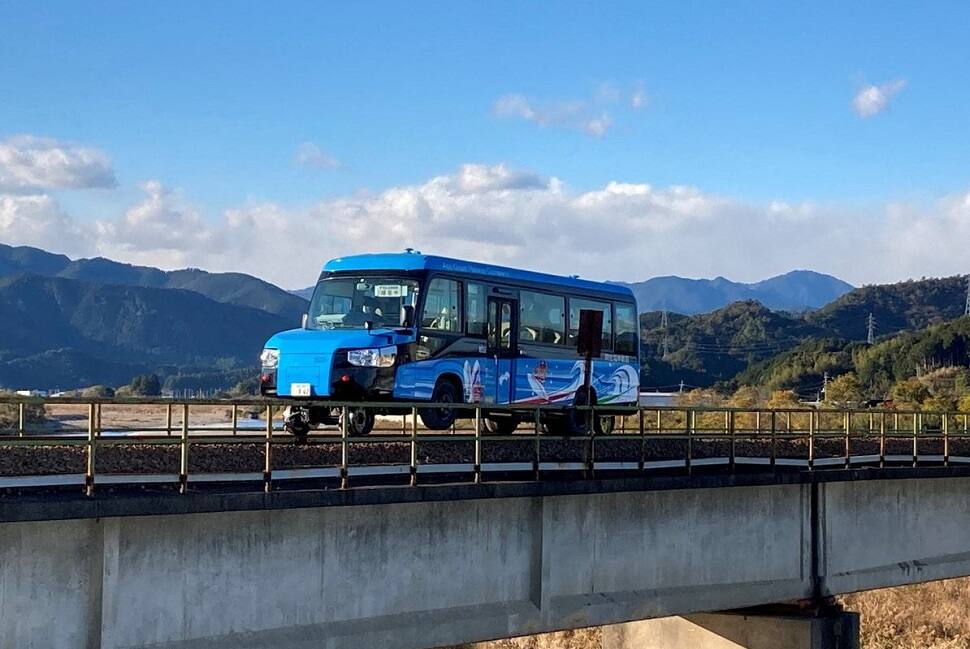
The train wheels lift the front tyres off the track while the rear wheels stay down to propel the DMV onto the railway.
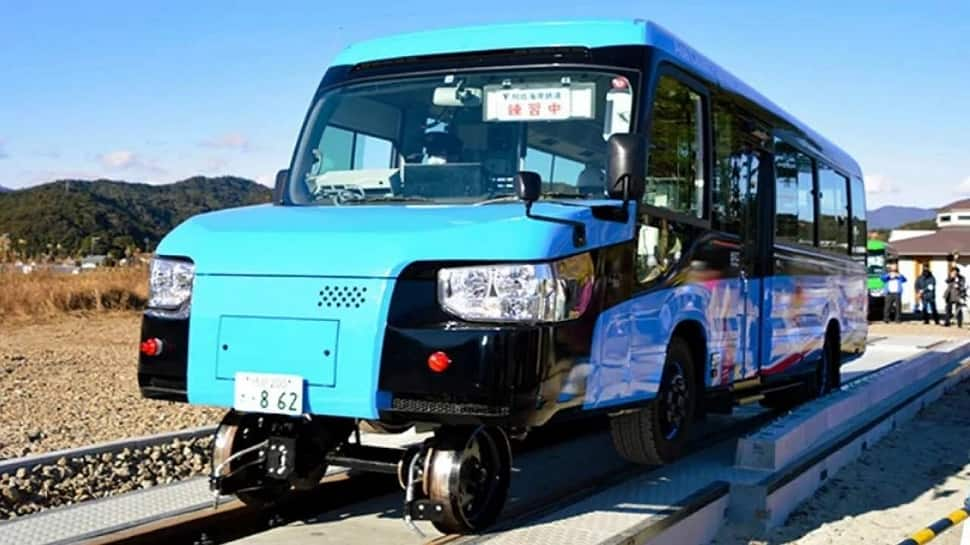
The DMV can carry up to 21 passengers and runs at a speed of 60km/h (37 mph) on rail tracks and can go as fast as around 100km/h (62 mph) on public roads, Asa Coast Railway said.
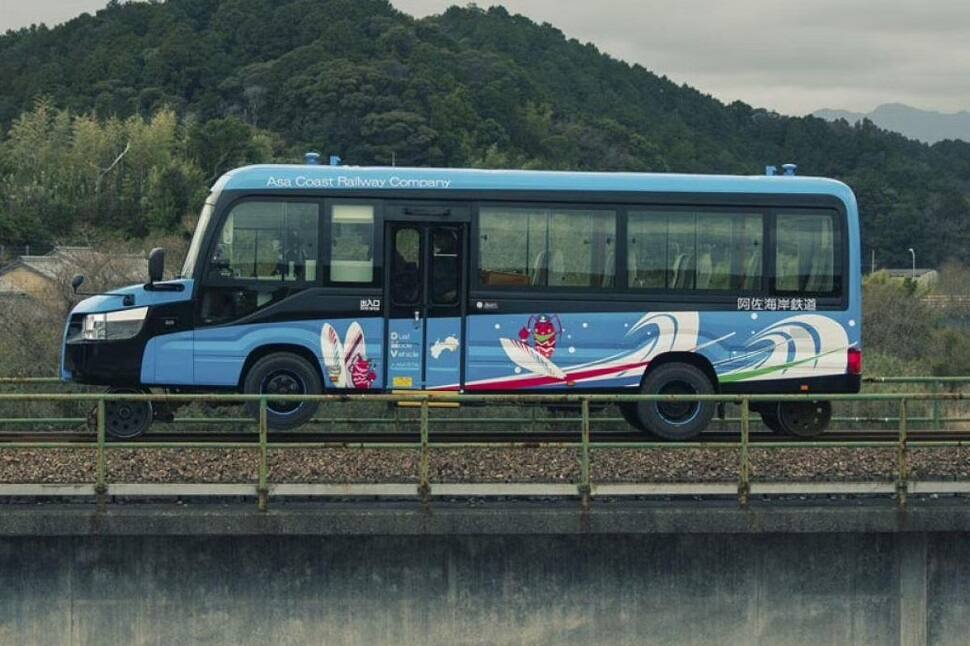
Powered by diesel fuel, the small fleet of vehicles, which come in different colours, will run along part of the coast of Shikoku island in southern Japan, connecting several small towns and offering passengers attractive seaside scenery.
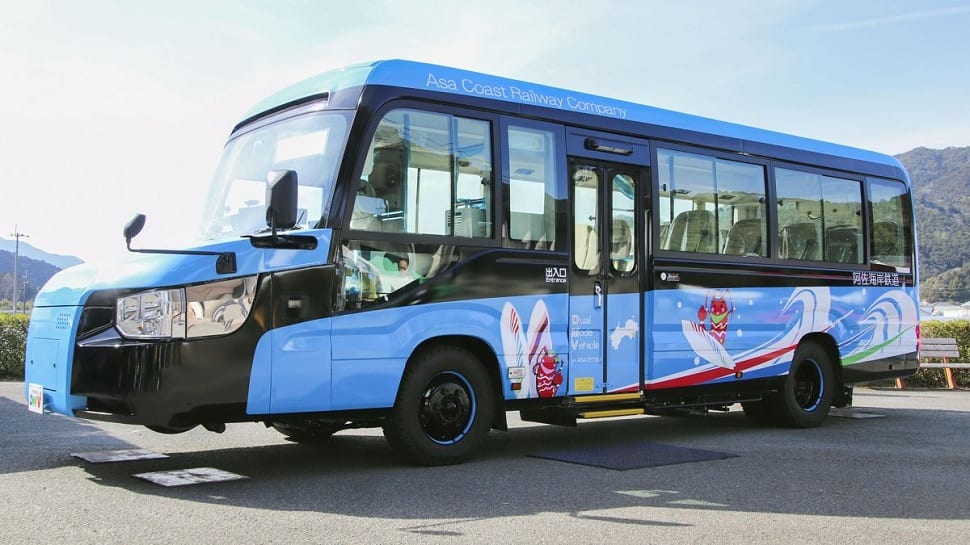
The CEO of Asa Coast Railway company, which operates the DMVs, said the vehicles could help small towns like Kaiyo with an ageing and shrinking population, where local transport companies struggle to make a profit.
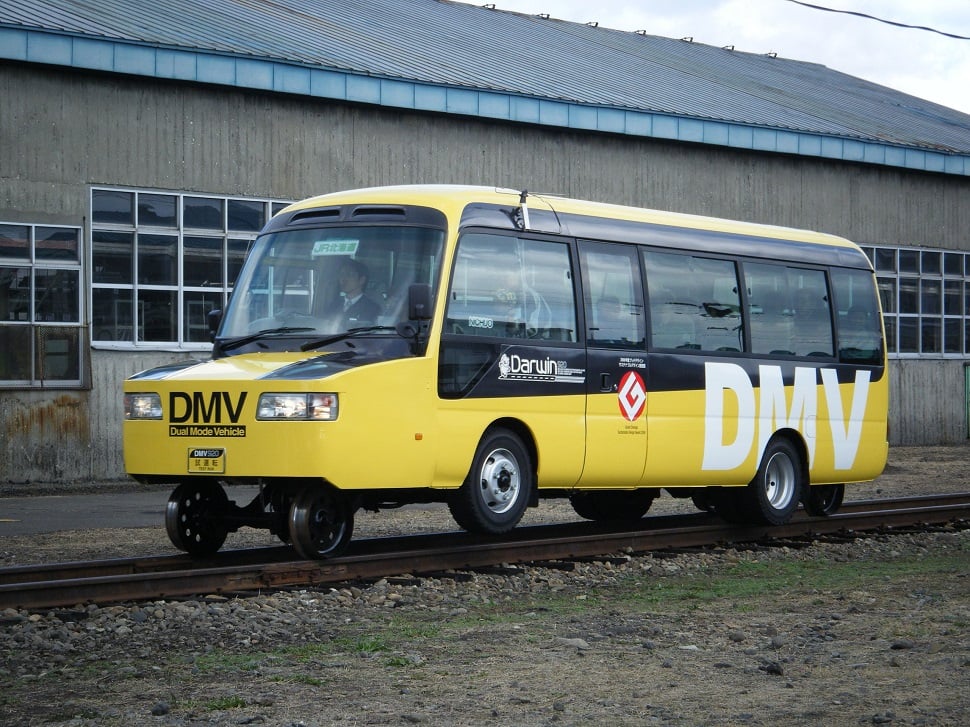
This (DMV) can reach the locals (as a bus), and carry them onto the railway as well, said CEO Shigeki who is hoping the project would encourage railway fans from around Japan to visit.

